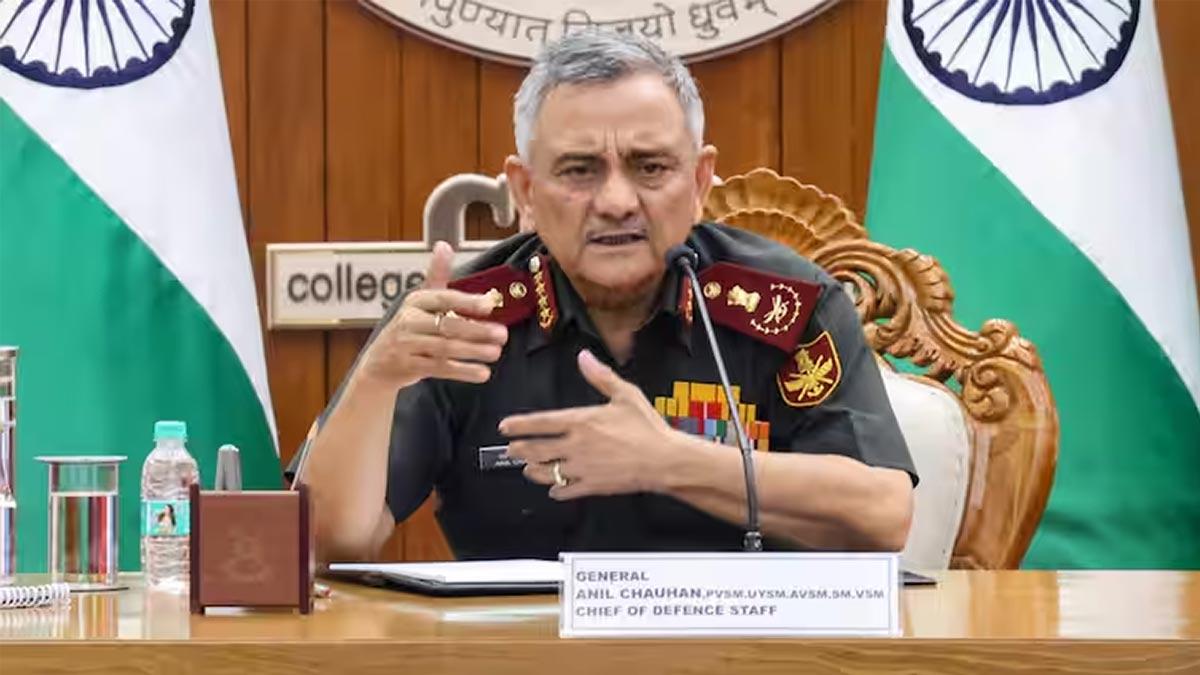Chief of Defence Staff General Anil Chauhan has expressed serious concern regarding the upcoming alignment of interests among China, Pakistan, and Bangladesh, saying that such a congruence would pose serious threats to India's internal security and regional stability. Addressing a forum sponsored by the Observer Research Foundation, Gen. Chauhan emphasized the need for strong developments of conventional and the next-generation capabilities in order to counter changing threats.
Highlighting the importance of modernizing India's war readiness, Gen. Chauhan highlighted the imperative of gearing up to new battlefronts. "The fourth changing military challenge is growing vulnerabilities to long-range vectors and long-range precision flights," he stated. "There is no foolproof defence system yet against ballistic missiles, hypersonics, cruise missiles, and large scale attack by drones or loitering ammunition." He emphasized that India needs to expand its conventional military reach and be able to operate effectively across these newer, emerging areas.
Gen. Chauhan also touched upon wider regional politics, pointing to alignments in motion that could have direct effects on India's security stance. "There is a potential convergence of interest … between China, Pakistan, and Bangladesh that could have an effect on India's stability and security calculus," he said. His remarks come at a time of increasingly tense relations with Bangladesh after the removal of former Prime Minister Sheikh Hasina in August 2024.
The CDS also referred to the Indian Ocean Region (IOR) as a sensitive geopolitical area where vulnerabilities of the economy are being taken advantage of by external powers. "The Indian Ocean Region has enabled external powers to utilize their strength through debt diplomacy, causing vulnerabilities to India," he said. He cautioned that constant political change in leadership in South Asia, in turn with changing ideologies and alignments, constitute yet another layer of strategic challenge.
Looking back at the recent India-Pakistan military confrontation between May 7–10, Gen. Chauhan opined that the incident—termed Operation Sindoor—could be a historical precedent. "India has also declared that it will not be intimidated by nuclear blackmail. I believe Operation Sindoor is the sole instance of a confrontation between two nuclear weapon states," he stated.
He labeled the operation as "slightly unique in itself," with possible lessons not just for the Indian subcontinent but for the international community. India's nuclear policy, especially its No First Use doctrine, provides strategic leverage, said Gen. Chauhan. "First is India's nuclear doctrine, that there's no first use. I think that gives us strength and that contributes to creating this particular space between us and Pakistan," he said.
Speaking of India's strategy during the war, he stated, "When India went to retaliate, we targeted terrorist camps in retaliation to the terror attack as part of a prevention policy… that should preclude further attacks." He mentioned that India's restraint positioned the burden of escalation on Pakistan. "Escalation to a conventional space was in the hands of Pakistan. Therefore, it lowers his option to increase the threshold of this nuclear war," he concluded.


















